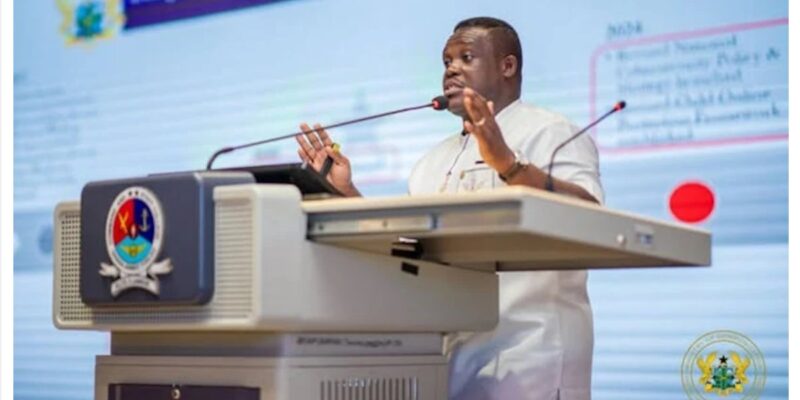Ghana’s Minister for Communication, Digital Technology and Innovation, Samuel Nartey George, has issued a stark warning to African government invest in cybersecurity or risk undermining national sovereignty and stability.
Speaking at the Ghana Armed Forces Command and Staff College in Accra during the ongoing Defence Management Course 25, George stressed that cyber resilience must become a core pillar of Africa’s defence strategy, not an afterthought.
“Cyber security doesn’t win elections, but its absence can cost lives and state stability. We must prioritise it”.
By Ruvarashe Gora
George’s presentation, titled Cybersecurity: Ghana’s Policy and Readiness, painted a sobering picture of Africa’s digital vulnerabilities in an era of rapid technological transformation. He called on African nations to shift from piecemeal compliance to long-term investment in cyber tools, AI defence, and skilled digital security personnel.
He warned that digital systems powering traditional defence, governance and public services such as e-parliament, e-justice and e-immigration are now attractive targets for cybercriminals and state-sponsored actors. “The digital economy is the new battleground,” he said.
George backed his call with examples of Ghana’s own progress, highlighting partnerships with INTERPOL and the FBI that have led to cross-border cybercrime arrests and asset recoveries. He revealed that Ghana’s cybercrime unit is deploying AI-powered forensics to dismantle transnational fraud networks.
The minister also disclosed ongoing reforms to Ghana’s cybersecurity legislation to tackle threats such as AI-generated deepfakes, terrorism financing, and online child exploitation.
Industry analysts have echoed George’s sentiments, urging African leaders and tech regulators to adopt a “secure-by-design” mindset. They argue that without shared governance frameworks and scaled investment in local cyber skills, the continent remains dangerously exposed.
George closed with a challenge to the continent: stop treating cybersecurity as a technical issue, and start recognising it as a matter of continental survival.















Comments